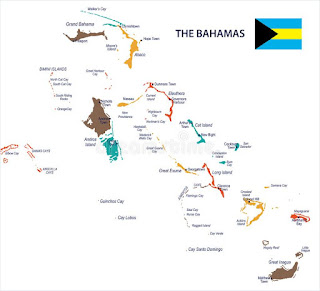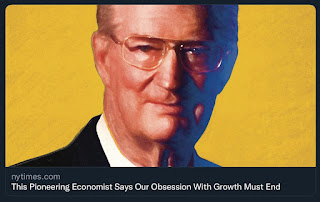
A political blog about Bahamian politics in The Bahamas, Bahamian Politicans - and the entire Bahamas political lot. Bahamian Blogger Dennis Dames keeps you updated on the political news and views throughout the islands of The Bahamas without fear or favor. Bahamian Politicians and the Bahamian Political Arena: Updates one Post at a time on Bahamas Politics and Bahamas Politicans; and their local, regional and international policies and perspectives.
Thursday, September 22, 2022
The Bahamas is one of the most difficult places for its own citizens to do business or become entrepreneurs!
Saturday, September 17, 2022
My Take on the Marital Rape Bill
The Marital Rape Bill is a Serious Attack on The Holy Institution of Marriage
By Dennis Dames
The Martial Rape Bill is what King Solomon would refer to as: madness and folly, and a
chase after the wind.
It will, if passed, create more problems than it solves – in my view. For one, it will kill the sacred institution of marriage instantly - as who is the sensible man who would want to get married under
such a wicked law?
Sweethearts and ladies of the night are delighted about this situation- no doubt. Their standard of
living will improve dramatically with the a passage of a Marital Rape Bill.
God is not pleased!
Sunday, September 4, 2022
The Official Opposition, Free National Movement (FNM) party is in political upheaval
Inside troublemakers who support the return of the former FNM party leader, Dr. Minnis are apparently trying feverishly/violently to frustrate the leadership of one Michael Pintard
Dr. Hubert Alexander Minnis is the seemingly bitter former FNM party leader who refuses to "Get Lost!"
Leadership challenges faced by Pintard historically infamous
The Hon. Michael Pintard is the sitting leader of the FNM. He attained such status in a democratic fashion, decisively. Dr. Minnis is the seemingly bitter former leader, who did not offer himself for the role when Pintard disposed of several others through the “in order” convention voting process.
As I pointed out in an earlier opinion piece it doesn’t appear that Dr. Minnis is going away. The view here is that he continues to grandstand, is not really respectful of Leader Pintard, and there is, accordingly, this emotional spillover to his supporters. Thus the FNM party is in deep crisis. Pintard’s leadership is being assailed.
This is unfair and unprecedented in Bahamian politics.
This atrocious scenario never came about before because politicians and their followers of the past, though many of them were strong-minded, their characters did not lend themselves to violence against each other.
The country’s first political party, the Progressive Liberal Party (PLP) saw the leadership pass from Henry Milton Taylor to Lynden Oscar Pindling. Taylor and a few others were bitter about the new kids on the block taking over, but there was not much of a thought of challenging the new order.
After Pindling’s 30-plus years of leadership, Perry Gladstone Christie emerged as leader. There was the expected resentment and disappointment felt by those who preferred Dr. Bernard Nottage, but the party moved on handsomely. Christie delayed his time in PLP leadership, by failing to live up to his own reported time table to demit office. However, present PLP Leader and Prime Minister Philip “Brave” Davis bided his time, and look where he is today!
The second political party in the country which produced the first government, the United Bahamian Party, had a very smooth transition from the longtime leader Sir Roland Symonette era to Sir Jeffery Johnstone.
The FNM itself, went through many changes, in true democratic fashion, never burdened by anything such as inside troublemakers, apparently trying feverishly/violently to frustrate the leadership of one Michael Pintard.
This is not right. Let the man do his job in peace.
From Sir Cecil Wallace to Sir Kendal Isaacs and back to Sir Cecil; to the three-time prime minister Hubert Alexander Ingraham; to Dr. Minnis; with interim leaders in place such as John Henry Bostwick, Cyril Tynes, and Tommy Turnquest; the FNM never faced anything even close to the present debacle.
It is therefore incumbent upon Pintard and the others within the FNM who have rationale, to immediately put the house in order.
Monday, August 15, 2022
Bank Report: Small firms in five Caribbean economies surveyed - reported high financing costs as a more significant barrier to business than larger firms
IDB Report: Better Access to Financing for Firms Could Drive Growth and Jobs in Caribbean
A new report from the Inter-American Development Bank (IDB) and IDB Invest recommends Caribbean countries focus on overcoming obstacles to financial access and inclusion for businesses, because having more developed and inclusive financial systems could increase growth and reduce poverty and income inequality.
The report Finance for Firms: Options for Improving Access and Inclusion emphasizes the important link between deeper and more accessible financial systems, and faster and more inclusive economic development. The publication compares financial systems of six Caribbean countries—The Bahamas, Barbados, Guyana, Jamaica, Suriname, and Trinidad and Tobago—to others from across the world. It also assesses results of enterprise surveys in 2014 and 2020 to identify key financing challenges faced by firms, including small enterprises, and those that are owned or operated by women.
The report finds that firms across the Caribbean face outsized challenges, particularly when compared to global peers. It also finds that the COVID-19 crisis appears to have further constrained access to financing, that smaller firms seem to face more significant hurdles than larger ones, and that businesses owned and/or operated by women face more severe challenges than others. These challenges companies encounter include high borrowing costs, burdensome collateral requirements, inadequate funding mechanisms, and complex application procedures.
In 2020, 76% of firms in Suriname and 72% of firms Barbados reported that issues such as significant collateral requirements posed major or very severe obstacles to their performance and ability to do business, up from 22% and 35%, respectively, in 2014.
Meanwhile, in 2020, small firms in five of the six economies surveyed reported high financing costs as a more significant barrier to business than larger firms.
Surveys also suggest that women-owned or -operated firms (WOFs) face more significant financial constraints than other firms, with an average of about two-thirds of these enterprises reporting access to financing as a major or severe obstacle.
“It is key for the public and private sector in Caribbean countries to collaborate so entrepreneurs can better finance their ambitions to grow their businesses,” said David Rosenblatt, Regional Economic Advisor for the IDB’s Caribbean Department. “This is important for strengthening the ongoing economic recovery, in the near-term, and improving growth prospects for the future.
The authors proposed several priorities, including ensuring macroeconomic stability and policy prudence, improving the availability of credit information, and promoting credit sector competition, among others.
Finance for Firms: Options for Improving Access and Inclusion is part of the IDB’s Caribbean Economics Quarterly series. In addition, it has country-specific sections for The Bahamas, Barbados, Guyana, Jamaica Suriname, Trinidad and Tobago.
This report is in line with the SMEs, gender and inclusion pillars of Vision 2025 – Reinvesting in the Americas the IDB’s roadmap to economic recovery and inclusive growth in Latin America and the Caribbean.
Thursday, August 4, 2022
REPORT: San Salvador Island tourism-based island economy is constantly under threat of climate change impacts such as submergence of coral reefs, flooding of coastal lowlands, loss of marine and terrestrial biodiversity, and destruction of cultural heritage sites
The Economics of Climate Change Adaptation and Ecosystem Services in The Bahamas
Lessons from San Salvador Island
San Salvador island in The Bahamas is highly vulnerable to climate change impacts due to its limited land space, fragile ecosystems, population and assets exposure, limited human and technological capacity, and susceptibility to the vagaries of international trade and exogenous economic shocks.
Monday, July 25, 2022
It is possible to substantially improve the quality of education for all while focusing on the students who need it the most
All members of society benefit from improving the educational outcomes of all of our children
Does Educational Support for Struggling Students Also Benefit High Achievers?
From Research Insights - IDB
We compared the test scores of higher-achieving students after one academic year, finding substantially greater achievement across the board in treated schools - compared to control schools. In treatment schools where there were tutoring activities, higher-achieving students outperformed similar students in control schools by 0.108 of a standard deviation. This coefficient is sizable and represents roughly 30 percent of the treatment effect on the eligible students (low achievers). For both literacy and math, average achievement decreases monotonically with the share of low-achieving students.
We also estimated the effect of peers’ contemporaneous outcomes on high achievers and found strong evidence of peer effects on academic outcomes. Our results imply that a one-standard- deviation increase in peers’ contemporaneous test scores increases individual reading scores by 0.679 of a standard deviation.
POLICY IMPLICATIONS
Our findings suggest that policies looking to support the bottom of the achievement distribution have the potential to generate social-multiplier effects for all students, providing a strong rationale that underscores why all members of society can benefit from improving the educational outcomes of only some. It is possible to substantially improve the quality of education for all while focusing on the students who need it the most.


.jpg)




